Bidet vs Toilet Paper: Which is Better?
-
- Last updated:
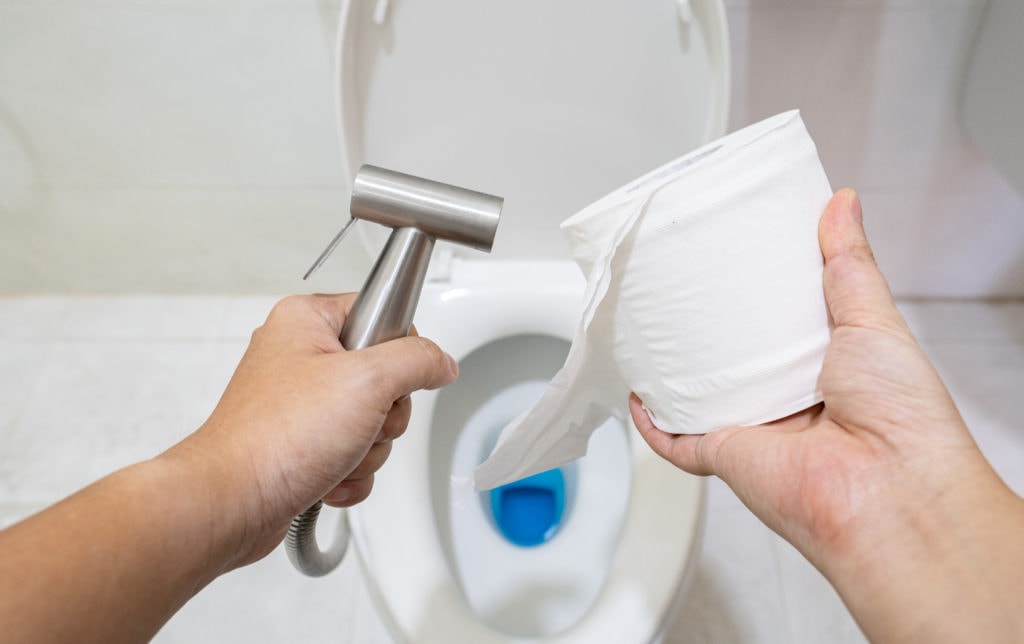
Among Americans and a few other populations, there’s still a tendency to consider bidets as a strange foreign custom, one of the odd differences between us and those fancy Europeans. Recently, though, a growing number of people have begun to suspect that those fancy Europeans are on to something.
In case you’re still in the dark: a bidet is a bathroom appliance used for washing out the waste from your anus that you would normally wipe away with toilet paper. It can either be a freestanding appliance, about as high as your toilet bowl, or it can be built into the toilet seat itself.
They’re extremely common in practically every country except the United States. Trying to psychoanalyze why bidets never caught on in the US is a bit beyond our scope — some point to the fact that our English forbears were instinctively hostile to anything French — but ultimately, nobody is sure.
Suffice it to say that the alternative butt-cleaning revolution is finally making inroads in America. If you’ve reached this article because you’re wondering whether it’s time to join the #washdontwipe movement, we’ve got all the info you’ll need. Read on to learn about the pros and cons of bidets and toilet paper, and which option is right for you.
A quick disclaimer: this post will discuss medical conditions. We are not doctors, and nothing we write should be taken as medical advice. Talk to your general practitioner or anal care specialist if you’re considering a bidet for medical reasons.
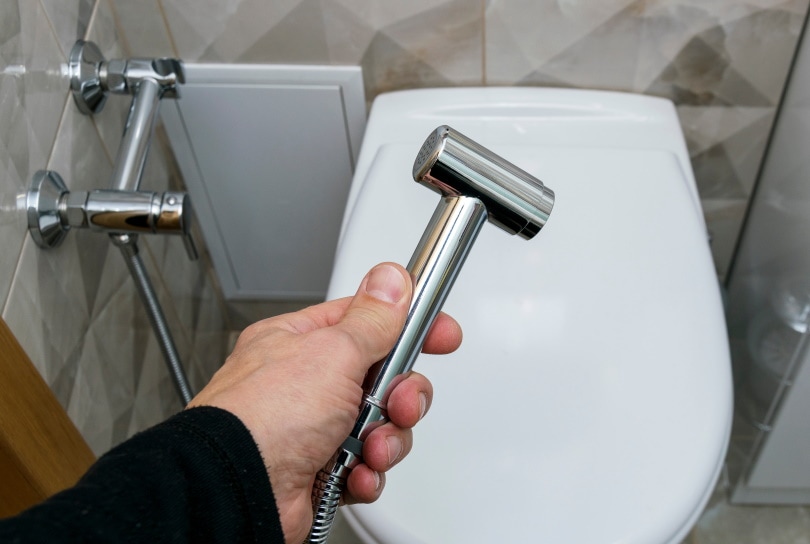

Toilet Paper In-Depth
Before the invention of toilet paper and bidets, cleaning one’s butthole had a checkered history. The ancient Romans infamously used a sponge on a stick that would sometimes be shared between all the patrons of a public bathroom. So, take heart: no matter what you choose to use, it will never be that disgusting.
When paper first came into wide use in the West, people started using magazines and newspapers to wipe. The modern perforated roll was first sold in the United States in the late 19th century, but ran into problems in the market because Americans were so accustomed to cleaning themselves with magazines for free — Sears Roebuck famously mailed out catalogs whose pages were intentionally soft enough for that exact purpose.
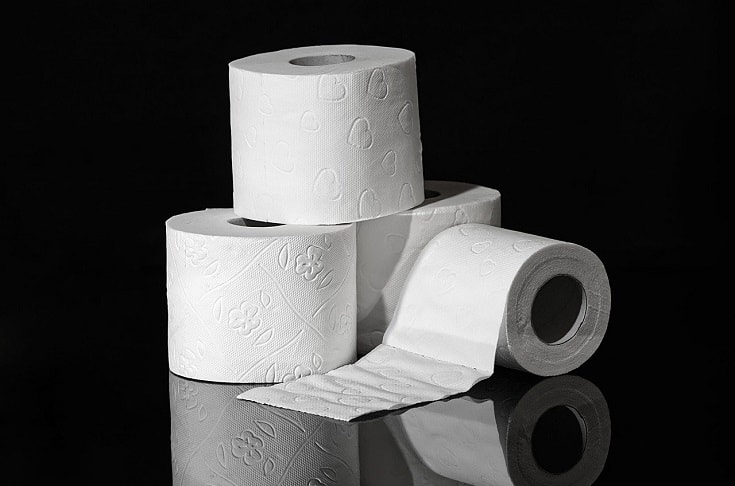
But “bathroom tissue” finally caught on as a necessary item. It’s been in the news again recently because of the COVID-19 pandemic: despite a complete lack of evidence that the virus is disrupting toilet paper supply chains, people panicked and bought out entire grocery store shelves, forcing the rest of us to order it from wholesale suppliers (unfortunately, you can’t use the Sears catalog anymore).
Why Use Toilet Paper?
If you regularly use toilet paper, you don’t really need us to explain why it’s good. You don’t need any hardware to use it, except for an optional roll holder. It keeps your butt dry while cleaning it off, and there’s very little danger of damaging your anus with excessive pressure.
The other biggest perk of toilet paper is that it’s portable, and therefore a necessity for backpackers, overlanders, preppers, and other people who routinely find themselves without running water.
Why Shouldn’t You Use Toilet Paper?
Despite all that convenience, there are those who argue TP’s time is running out. The biggest count against it is that it’s a single-use, disposable item. Not only does this make it bad for the environment – toilet paper piles up in landfills and makes us chop down more trees – it also means you’ll constantly be running out.
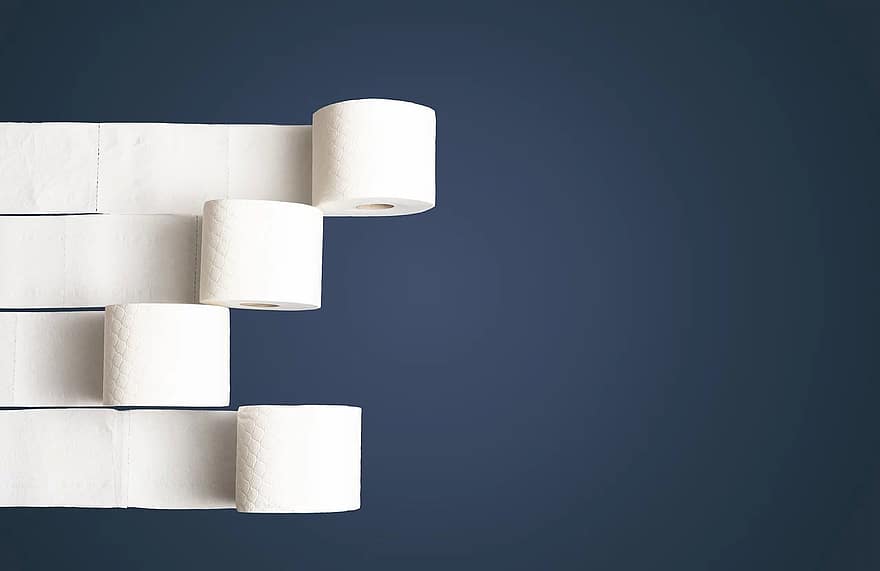
Other arguments against toilet paper focus on hygiene. Bidet advocates argue that without water, you can never get your butthole entirely clean, since using dry toilet paper limits the places you can reach. Furthermore, if you have a medical condition that causes your butt to itch, toilet paper can make it worse.
- No installation required
- No dampness
- Lower pressure
- Portable
- More expensive over time
- Bad for the environment
- Can irritate anal itching
- Might not reach all poop
Bidets In-Depth
Bidets were probably invented in 18th-century France, and like toilets, were initially installed in bedrooms rather than separate bathrooms. The name, which is French for a type of strong horse, refers to the way you’re supposed to stand in order to use it.
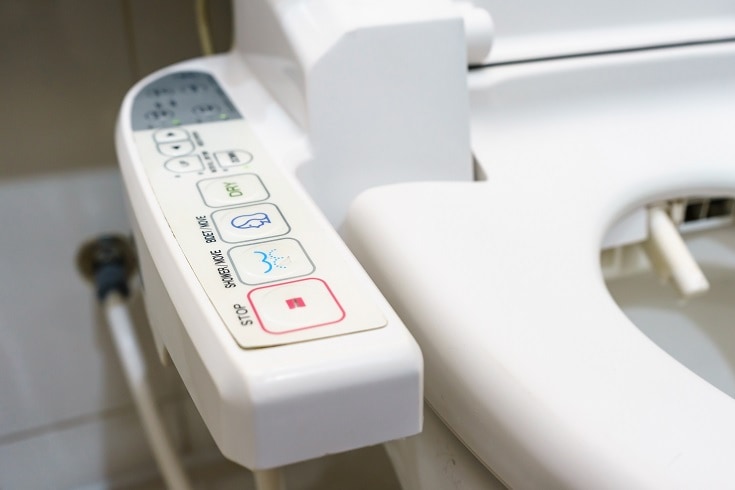
Like toilet paper, bidets began as a luxury item but soon went mainstream. Bidets or washlets (the common term for a bidet attachment on a toilet) are found in about 80 percent of bathrooms in Europe, Asia, and South America. They’re now exploding in the U.S., thanks again to COVID-19 destroying the availability of toilet paper.
Using bidets involves a somewhat steep learning curve for the uninitiated. Almost all of them now let you control the jet stream with a remote or control panel. The key is to use a warm, low-pressure water jet. In most cases where people have a bad experience and vow to never use a bidet again, they had the water stream too cold, too strong, or both.
Why Use a Bidet?
It costs a bit of money to install a bidet in your bathroom, but once you’ve paid that, you’re done. Even if you like to use a bit of toilet paper in conjunction with the bidet, you’ll still cut your consumption by a huge amount. It doesn’t take long for the money you save to start piling up.
Bidets are also better for the planet. There’s no such thing as throwing something away completely, so the only way to keep toilet paper out of landfills is to switch to an alternative.
Bidet lovers also point to the refreshing experience of wiping your buttcrack with water instead of dry paper. It reaches everywhere, leaves you feeling much cleaner, and avoids the toilet paper problem of never being sure you’re finished. Water is also much less likely to make you feel itchy later, and you can always use a couple sheets of TP afterwards if you want.
Why Shouldn’t You Use a Bidet?
Much of the discourse around bidets, both positive and negative, is overblown (see “Bidet Myths Busted” below). If you can cut through the marketing hype, you’ll see these miracle cleaners do have a few drawbacks.
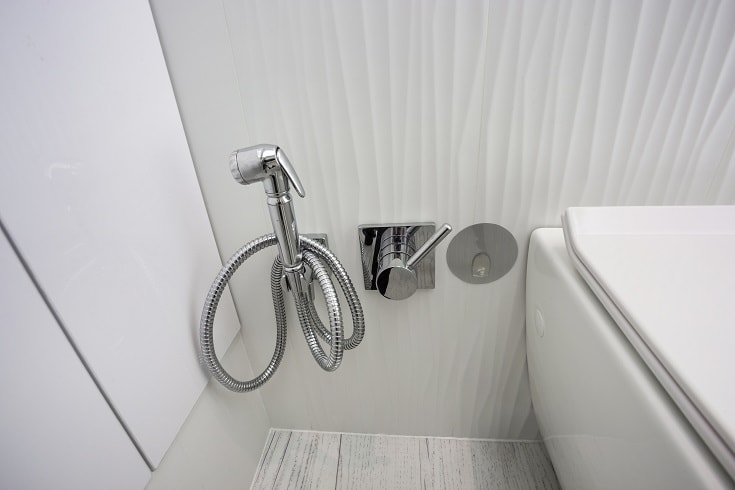
Number one is convenience. If you don’t have a bathroom big enough to add an extra appliance, and don’t have the money to invest in a quality toilet seat attachment, you’re out of luck. Like it or not, bathroom time in the U.S. is designed around toilet paper for now.
There’s also the learning curve we mentioned above. Not knowing how to use a bidet correctly isn’t just unpleasant — it can be actively unhealthy. Using water on too high a pressure can penetrate your anus, causing minor but long-term damage.
In the end, while bidets might be more comfortable and economical in the long-term, there’s little to no evidence they are healthier. Bidets have not been scientifically proven to have any impact on hemorrhoids, constipation, anal fissures, or other medical conditions, save for the specific symptom of pruritus ani (itchy butthole).
- Cheaper over time
- Refreshing clean
- Reaches everywhere
- Doesn’t exacerbate medical symptoms
- Not portable
- Large one-time investment
- Must learn how to use correctly
- High pressures can be harmful
Bidet Myths Busted
In this section, we’ll do our best to clear away common bidet misconceptions, using a warm, low-pressure jet of clear and accurate information.
Myth #1: Bidets are only for women
Many people think bidets are only for women, or other people with vaginas. Not true. Bidets are for cleaning anuses, which everyone has. Not only are they not intended for cleaning vaginas, but in fact, you should not clean your vagina at all. It cleans itself.
Myth #2: Bidets are the only way to get your butt completely clean
Bidet marketers will often say that toilet paper is unhygienic, since it just “smears fecal matter around” without removing it. While it may be true that you can’t get everywhere with toilet paper, leaving a bit of poop down there is in no way a health problem. As an article in Wirecutter puts it, “We do not have some national health crisis in America where our butts are too dirty.”
Myth #3: Bidets splash water everywhere
Blame Crocodile Dundee for this one. The image of a bidet as a messy fountain jet is tough for some Americans to shake. Most of them are no more likely than a faucet to splash water everywhere.
Myth #4: Bidets spray with toilet water
Absolutely not. Bidets spray using the same clean water as your faucet and showerhead.
Myth #5: Bidets are better for anal health issues
The science is inconclusive on this one. One study from Korea suggests that using a bidet can reduce pressure on your anus, but another study from Japan suggests it can make fissures worse. The bottom line: don’t make a major change to treat a medical condition without consulting your doctor first.
Myth #6: Bidets are expensive
Don’t let the French name fool you. You can add a washlet attachment to your toilet seat for as little as $70.
Myth #7: People can prank you by using the bidet remote from another room
Apparently, this is a thing some people worry about, so let us reassure you: bidet remotes use infrared connections that don’t work through closed doors.


The Verdict
Should you stick with toilet paper, or switch to a bidet?
If you’ve always wanted to see what the bidet fuss is about, we recommend going for it. If you don’t turn it on at the highest pressure, there’s little risk, and in the best-case scenario, you’ll save a lot of money on toilet paper.
On the other hand, if you’re not inclined to switch, toilet paper won’t destroy either your butt or the world if you use it responsibly. Our verdict is that we aren’t picking a winner: use whatever you’re most comfortable with. The important thing is that you get clean!
Featured Image Credit: James-Are-Shutterstock
Contents

